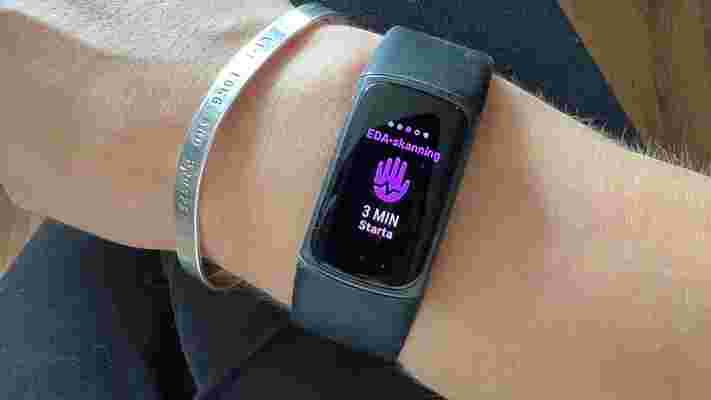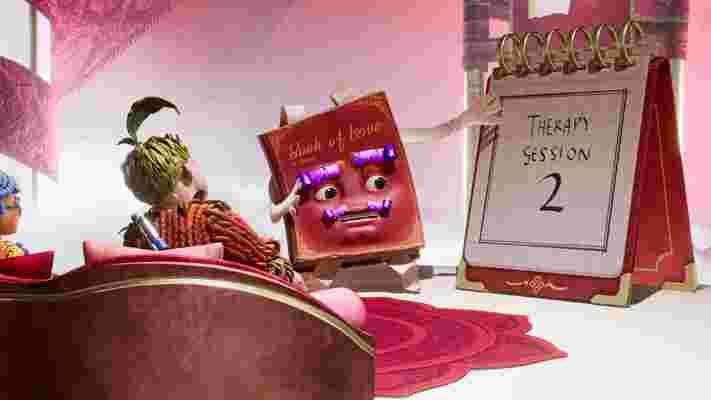I hope no one reads my notebook. Words like ‘bleed out’, ‘kinky’, and ‘meemaw’ litter its pages, with devil-scratched dates and times alongside them: I wouldn’t want anyone to take me for a serial killer.
I’ve not been plotting anything sinister, honest. I’ve simply been playing one of the best games to hit Xbox Game Pass : Telling Lies.
I’m ashamed to admit that when Sam Barlow’s Telling Lies was released back in 2019, I slept on it, despite the fantastic reviews it received. I’ve always had an aversion to FMVs, thinking them outdated and as something that should remain firmly in the ‘80s. But Telling Lies has converted me.
Gripping from start to finish, Barlow’s detective thriller taps into our natural curiosity and is a must-play for anyone with (or without) an Xbox Game Pass subscription ahead of the developer’s new game, Immortality, later this year.
Tapping into our curiosity
Telling Lies pits you as an investigator watching through archived video calls between four people to get to the bottom of a plot. You use a database to search through the footage by entering keywords – if a word appears in any of the archived footage it appears as a short clip for you to watch. You use what you see and hear in the conversations between these characters to guess at keywords to enter into the archive. As you watch more videos and enter more words, the story begins to unfold – as do its many twists and turns.
Watching the videos feels intrusive, you’re a stranger invading private moments between couples, friends, and families. It’s even more uncomfortable having spent two years relying on the likes of Zoom and Skype to keep in touch with my own inner circle. I don’t want to spoil any story beats for those who haven’t played Telling Lies, but as you go you’ll find that while most of the videos push the narrative forward, several don’t add anything to the plot and those are the moments that are the most uncomfortable: should I be watching a child sleep while her father tells her a story? Probably not. But I am.
It reminded me of scenes in the Snowden movie depicting the NSA’s counter-terrorism monitoring: a screen full of private moments. It made me think about how I would feel if someone was watching back my many Google Meet and Zoom calls, they’d likely be bored but I would definitely feel invaded (and embarrassed).
But while Telling Lies is uncomfortable, it’s not real, so you can make peace with peering into these people’s lives like they’re a tiger in a zoo. We're all nosey, at least to some degree, even if we don’t like to admit it. Maybe you want to know what your neighbors are arguing about, or you’ve looked up your friend’s new partner on Facebook – we're curious and we can't help that. Telling Lies taps into that curiosity, that need to know, and encourages it. After all, what you’re doing is for the greater good, right?
Freedom to snoop

What’s most gripping about Telling Lies is the freedom it gives you. The non-linear narrative means that it’s up to you to make the connections. As a journalist, I’m wired to note pretty much everything I can, which quickly became an issue as I noted down every word, date, and time I thought had relevance – the legibility of the notes becoming more questionable as evening turned into night.
Ultimately, it meant that when I reached a dead-end in my investigation, I had hundreds of words noted down to look up. Yet, still, there were connections I couldn’t make, videos I couldn’t find. I felt like a detective in an HBO series, draining a glass of wine as I flicked back and forth between pages and videos, trying to find the word I must have missed. And I never did find all the videos, despite picking through as much as I could, something that eats at me days later.
I’ve finished Telling Lies at the perfect time, as Sam Barlow recently revealed his next game, Immortality . Rather than searching with words, in Immortality, you use items within its video clips to jump between scenes, almost like a reinvented hidden object game. Perhaps, before taking a chance on Telling Lies, I would simply have ignored Barlow’s next foray next FMV project. Instead, I’m preparing a new notebook to be soiled.
Your Fitbit could soon get a potentially life-saving new feature
Google is seeking approval from the US Food and Drug Administration (FDA) for an algorithm that would let its fitness trackers monitor your heart rhythm for irregularities at all times, making it more likely that potential problems will be picked up early.
The Fitbit Sense and Charge 5 are two of the best Fitbits currently available, partly thanks to their ECG sensors that measure the timing of the electrical impulses that make your heart beat. If the watch detects an abnormal rhythm ( atrial fibrillation ), you'll receive an alert on the device's face, and the Fitbit mobile app can generate a report that you can share with your doctor.
Atrial fibrillation doesn't always need treatment, and smartwatches can sometimes give false positive results, but it's something that's worth investigating. Right now, however, the ECG app has to be activated manually, which isn't something most people without symptoms are likely to do regularly.
As The Verge reports, if Google secures FDA approval, the next Fitbit might be able to monitor for atrial fibrillation in the background, making it more likely that irregularities will be spotted.

According to Tony Faranesh, a research scientist at Fitbit, there's no clear timeline for when passive ECG monitoring might actually appear, and it's likely to take quite a while before it can roll out globally, as Google will need approval from the appropriate medical regulator in each territory before enabling the option there.
Other ways to check
Can't wait that long? If you own an Apple Watch 4 or above (not including the Apple Watch SE ), you can set the watch to check for irregular heart rhythms automatically throughout the day.
Open the 'Health' app on your iPhone , tap the 'Browse' tab, and select Heart followed by 'Irregular heart rhythm notifications'. Once that's done, you can toggle irregular heart rhythm notifications on or off using the Apple Watch app on your iPhone.
Monitoring isn't constant, but your watch will check for signs of atrial fibrillation roughly every two hours (depending on your activity level), and you'll receive an alert if it detects something unusual and confirms it with multiple readings.
It's important to note, however, that smartwatches like the Apple Watch can't detect heart attacks. If you have any symptoms of a heart attack , you should call the emergency services immediately.
It Takes Two is being adapted for film and TV - and we have mixed feelings
It Takes Two , last year's big co-op gaming success story, is being adapted for film and TV, according to an exclusive report.
As reported by Variety , developer Hazelight Studios has teamed up with production company dj2 Entertainment to bring the game to both the silver screen and small screen.
"Creating the world and story in It Takes Two was so much fun for me and the team," developer Hazelight's founder, Josef Fares, told Variety. "Since it has a strong narrative with many crazy characters and just as crazy co-op action moments, the potential is huge for a great adaption to film or television."
dj2 Entertainment specializes in adapting games for film and TV, with the company previously working on the Sonic the Hedgehog film. Currently, dj2 has quite a few game adaptions in the works, including TV shows on Disco Elysium, Tomb Raider and Life is Strange and a Sleeping Dogs feature film. It makes sense, then, that the writers behind the Sonic the Hedgehog film, Pat Casey and Josh Miller, are currently attached to the project.
Currently, no studio or network is attached to the It Takes Two adaptions but, according to Variety's sources, it is currently "the subject of a multi-party bidding war".
Opinion: but will it actually work?

Hazelight's It Takes Two released to critical acclaim in 2021, even scooping up The Game Awards 2021 Game of the Year accolade - and it's not hard to see why.
It Takes Two tells the story of Cody and Rose who are on track to get a divorce - but to the dismay of their daughter, Rose. After some magic goings-on, the couple find themselves embodying two of Rose’s handmade dolls and have no choice but to work together to reach their daughter so they can undo whatever has happened – all while taking relationship advice from an anthropomorphic therapy book that’s determined to get them back together.
It Takes Two is a fun, tongue-in-cheek adventure that has elements that appeal to both gamers and non-gamers alike. It's easily one of the best co-op games of all time, taking elements from a variety of different games and intertwining them in a rom-com-like narrative.
But while It Takes Two is great fun to play, we're not quite sure how well its story will translate to the screen. Perhaps the weakest element of the game was, in fact, its writing and narrative, which were often too on-the-nose and cheesy (don't even get me started on how robotic the couple's daughter Rose was ). Sure, Sonic the Hedgehog writers are attached to adapt the game into scripts, but those movies aren't exactly going to be winning a Pultizer anytime soon - and there's only so much you can do with what's quite a basic story.
That being said, if the film and TV adaptions focus on the fun, tongue-in-cheek elements of It Takes Two - while adding a bit more depth to the story itself - then the adaptions could become a success, especially among children (whom it's likely the adaptations will be aimed at). I could easily see a series where Rose and Cody set off on a new adventure each episode in a bid to improve their relationship or a film where the levels we played in the game itself instead become action we watch play out on screen.
I'm cautiously optimistic for now, but perhaps we could see the man who famously said "F*** the Oscars" picking one up in the future.